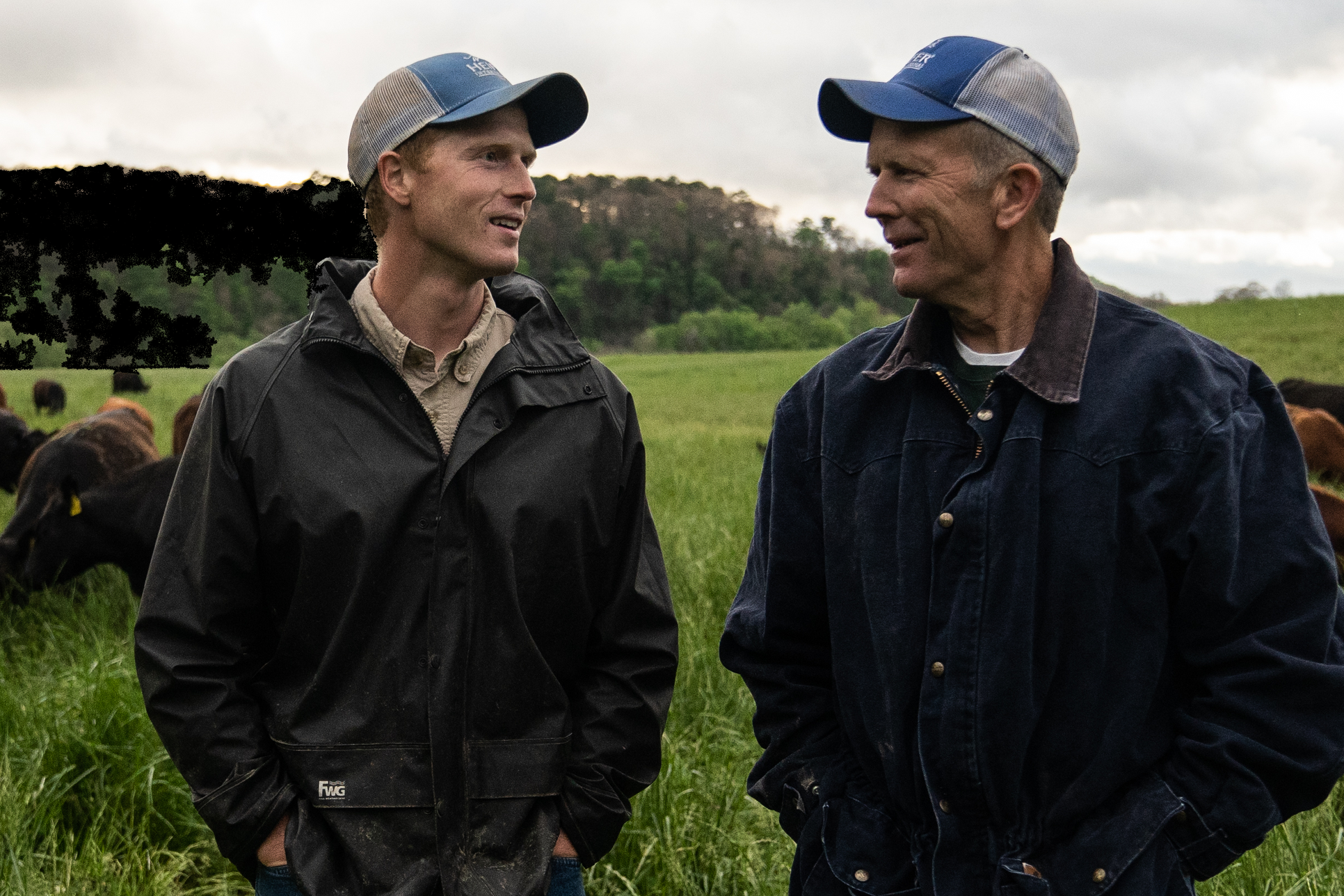A Look Inside A Grass Roots Farm

Brent Fry is the head farmer at Osage Creek Farms and has always loved what he does. He feels lucky to be at Osage Creek, which is comprised of about seventeen hundred acres in the rolling hills and hollers of the Osage Valley.
Brent’s grandfather started the farm back in the 40s. But, after a run of bad luck with some dairy cows during the Depression, most of his herd passed away. So grandpa Fry had to move away to New Mexico to survive, heal, and save money to come back to Arkansas. It took him about 10 years, and he said he was going to own land with water on it when he came back. And that’s exactly what he did.
The generational work at the farm almost came to a halt when Brent’s son, Drew, left the farm to go to college in Texas. After graduating, Drew moved to Seattle to work for an aircraft manufacturer as an engineer. But his heart longed for the farm’s rolling hills and childhood memories.
“I was actually the third generation in a row to leave the farm for a while and to then realize that exactly where I wanted to be was where I started. I think it took going away for me to realize that in the first place.” Drew says. “The extremely unique opportunity of having that connection to the same patch of dirt that my great-grandpa worked is something that not everybody gets to do. And I stand on the shoulders of those before me. And hopefully, we're laying the groundwork for something that can exist along after us.”
Brent and his wife are third-generation farmers on this farm. “We are lucky to have my son and daughter-in-law who have been here on the farm working day-to-day with us helping us with the grass-fed beef on the farm as well.” Brent shares, as he stands before the farmhouse that once belonged to his grandparents. “We hope to see at least five generations on the farm soon.”
Now, the entire family works at Osage Creek Farms where they care for the animals and land. “I feel that we were called to steward the resources we're responsible for the very best way that we can. Whether that's our cows, the land that the cattle walk on, the water resources, or the two miles of Osage River that are running through the middle of our farm. I think we're called to do our very best and do it with the humility that comes with knowing that this land is not ours. We're just called to manage it for a short time and we need to be responsible for it the very best way we can while we are here.”
The Fry family utilizes regenerative farming as they raise their livestock—a set of methods that have proven to be beneficial for the planet, the environment, and the animals. These farming practices have also proven to be financially beneficial for Brent. “It is financially advantageous for us to give the ground the rest and not buy the fertilizer, to not bother to not buy the grains, and to let the cows harvest it for us. It's also better for the land, which can rest and can regenerate and it can grow on its own.”
Since the farmers are working with nature and are allowing the land the rest it requires, the land—in turn—regenerates the most desirable forage for the animals to consume. This creates a “salad bar” so to speak, from which the livestock can feed on. Brent believes that beef takes on a bit of the flavor of its environment. So if the animals are breathing fresh air, drinking clean water, and eating the forage that nature designed it to eat, that meat is going to have a better flavor, a richer flavor, a more varied flavor. All of these practices, Brett says, “is so much of what sets this product apart.”
For Drew, the biggest draw to regenerative agriculture, is his generation’s desire to see a food system that’s sustainable and that can potentially reverse some of the climate effects that we've seen over the last century. When the Frys move cattle around and manage weeds with goats instead of with chemicals, they are improving root systems that allow the soil to capture nutrients better. It’s a natural way to improve the soil while developing forages.
For Osage Creek Farms, partnering with Grass Roots provides a steady source of demand so they can focus on tending to their livestock and land in the best ways possible. Drew thinks that “our relationship with Grass Roots has been excellent to have. We can be sure that our operation is economically sustainable, so we can go ahead and commit to finishing as many animals as we can using regenerative farming with the peace of mind of knowing that there's going to be a market there.”
"I'm here because of the legacy of the three generations that came before me. Success for me will look like in three generations’ time somebody can look back on the groundwork that's being laid now and say, ‘Hey, those were the right steps to take’ and moving forward. And I think that the future of agriculture is regenerative. I think the future of agriculture, especially at the scale that we're operating, is one in which we can know our consumers and know the people that we're working with."



